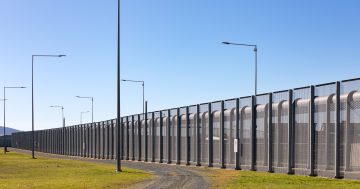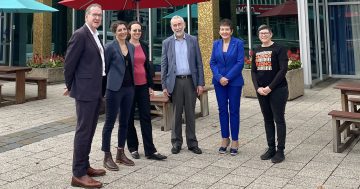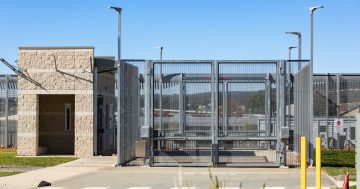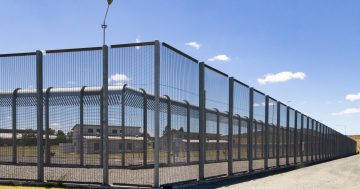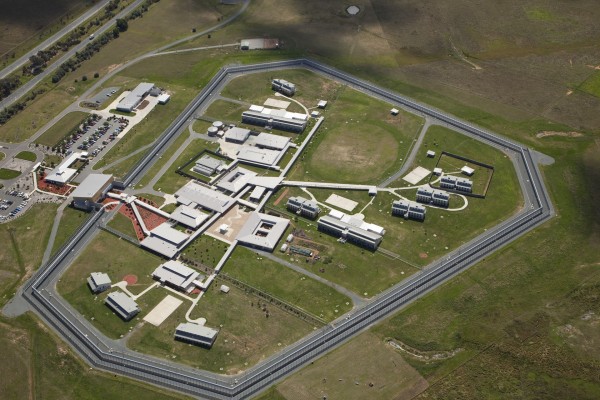
The Alexander Maconochie Centre. Time for a fresh approach, says Minister.
In a revolutionary change to the ACT’s corrections system, the Territory’s overcrowded prison will not be expanded but funding redirected to community and rehabilitation programs in a bid to reduce re-offending and the number of people in jail.
The move is part of an ambitious policy shift to what is known as Justice Reinvestment, in which money that would normally be spent on locking offenders up and expanding the prison system is spent on rehabilitation and keeping people out of the justice system.
While Justice Reinvestment has a humanitarian basis, there are pragmatic economic arguments for its approach. It has been taken up by some of the most conservative states in the US, with strong law and order policies, which found they could not afford their exploding prison populations.
The ACT Government will redirect $14.5 million to what it calls the Building Communities Not Prisons project, and instead of expanding the Alexander Maconochie Centre high-security campus, it will instead develop a purpose-built “reintegration centre” on the site.
It will also provide more supported housing, seen as a major factor in reoffending, and more options for safe and sustainable bail.
And with nearly a quarter of AMC prisoners being Aboriginal, the Indigenous-run, family-focused Yarrabi Bamirr program for Aboriginal and Torres Strait Islander prisoners will receive $3.6 million to continue its work. An evaluation of the 18-month trial of the Yarrabi Bamirr program, the ACT’s first Justice Reinvestment venture, will be released in coming weeks.
On the other side of the ledger, there will be a new scheme to provide assistance to victims of crime.
Minister for Justice and Corrections Shane Rattenbury says the new approach is an Australian first and a better way to help keep more people out of the prison system, and to help keep the community safe.
He said a feasibility study commissioned by the Government found that a large-scale expansion of the AMC would cost more than $200 million.
“With prison rates on the increase, we cannot—in good conscience—maintain the status quo,” Mr Rattenbury said.
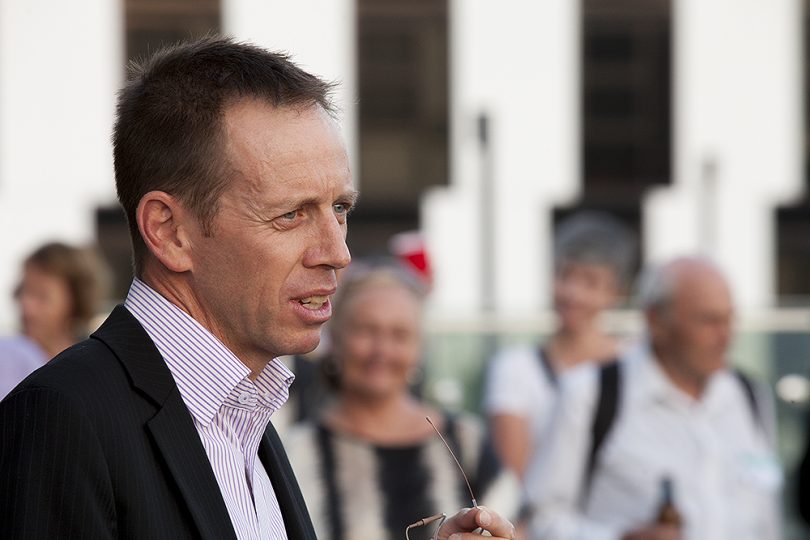
Minister for Justice and Corrections Shane Rattenbury: “With the right rehabilitation opportunities and interventions, we believe we can make a real difference to address offending behaviour.” File Photo.
He said the Government would fund evidence-based programs focused on crime prevention and addressing the actual causes of criminal behaviour.
“In taking this decision not to simply expand the jail, the ACT Government has clearly affirmed that not only do we want to urgently stem the flow of people into the prison, but that we will work to reduce the trauma and costs of crime for victims and their families and related costs for government and the broader community,” he said.
The Government will initially spend almost $1 million on work to plan and design the Alexander Maconochie Reintegration Centre, which will offer about 80 additional beds.
It will incorporate the former Transitional Release Centre, and, in partnership with non-government and government organisations, deliver a wide range of rehabilitation programs, including trauma and relationship counselling, alcohol, tobacco and other drug rehabilitation, and job training.
Detainees will also be housed in more appropriate accommodation as they prepare to reintegrate into the community, which the Government says will help to reduce recidivism and increase community safety.
Its says the Reintegration Centre will be a minimum security facility, with a focus on building community connections and participation in education and work.
The Government will also spend $6.8 million establishing a Bail Accommodation Transition Support Service in the ACT, to give the courts a new housing option to reduce the number of people remanded in custody.
Other programs to provide more stable housing will include both short-term, culturally sensitive, transitional accommodation and longer-term supported accommodation, with a comprehensive justice housing program to be developed over time, beginning with supported accommodation for men on bail.
A collaboration between government, the social and community housing sector and support agencies, it will also offer support and services to people to help prevent further contact with the justice system.
$1.6 million will go to expanding the Strong Connected Neighbourhoods program (formerly High Density Housing Program) that currently operates on Ainslie Avenue. It will now provide support services to Illawarra Court in Belconnen as well.
Mr Rattenbury said a recent independent evaluation of the Ainslie Avenue program by the Australian Institute of Criminology (AIC) found that it had reduced violent crime by 50 per cent and property crime by 60 per cent, and increased levels of social cohesion among high and complex need residents.
“The program effectively demonstrated its capacity to reduce and prevent crime by a cost-saving of police time equivalent to $0.50 for every $1 invested,” he said.
The Government says the new Victims of Crime Financial Assistance Scheme will make it easier for victims of crime to receive monetary support and ensure more people receive more timely help.
Mr Rattenbury said Justice Reinvestment was an honest approach to the reality of incarceration in Australia.
“While crime rates are going down, incarceration rates are going up. The most just justice system is a system that acts early to help prevent the kinds of circumstances that can lead to crime in the first place,” he said.
“With the right rehabilitation opportunities and interventions, we believe we can make a real difference to address offending behaviour.”
He said the Government’s goal was to reduce recidivism by 25 per cent by 2025, and was part of the Labor-Greens Parliamentary Agreement.
“We know this is an ambitious target but we must push ourselves and challenge ourselves to think differently about how we address offending to reduce the need for imprisonment in a supportive way for our community,” he said.
“We’re committed to building communities, not prisons, to help keep more individuals out of prison and to help keep our community safe.”












